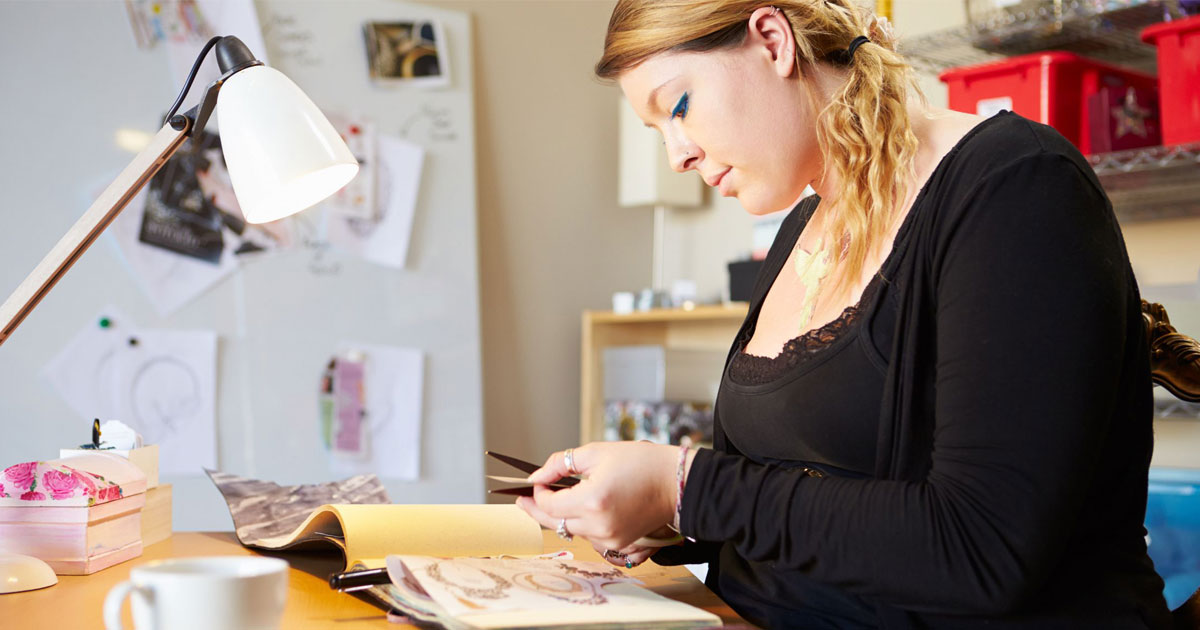Dealing with triggers in recovery can feel like an ongoing battle – and that’s because, in large part, it is. Triggers are a lasting, repetitive reminder of your substance use and are unique to you and your situation. They can also look different for each individual and could be a person, place, situation, or even an object. Understanding how to handle addiction triggers can help you prepare for when you find yourself in a triggering situation, and the coping skills that work best for you can help you stay on your path to sobriety.
Handling triggers can be difficult at any stage of recovery. What is most important is identifying your unique triggers and learning to cope with them in a way that is healthy and positive. As someone on a lifelong sobriety journey, I can attest to moments where triggers still pop into my life. Our ability to overcome and stay focused minimizes the impact these triggers can have.
In this post, I will highlight some of the techniques that have worked not only for myself but others as they continue on in their own recovery journey. I hope they can help you as well!
What Are Triggers?
Psychologically speaking, triggers are any sort of stimulus that can cause the urge to use a substance to resurface. Triggers can come in many different forms depending on you and your experiences. As mentioned, they can be people, places, objects, or even sights and sounds that remind you of intense or overwhelming emotions and your past substance use. They can be a reminder of instances where substances ruled your life or of a past trauma that once led you to use substances.
When faced with these triggers, you are at risk of both emotional and physical consequences, like breaking down or trying to cope with the trigger in a way that is counterproductive to the recovery journey. For someone who once used alcohol as a coping mechanism, this could be as simple as walking past a bar they used to frequent, a friend who would party with them, or even a holiday or celebration where drinking is normalized. Triggers are dangerous because they can increase the risk of relapse if not appropriately addressed.
Types of Triggers

While triggers exist in many forms, there are two main types: external and internal. External triggers are associated with objects, people, places, sights, sounds, activities, and memories that bring back certain feelings or cravings associated with past substance use. Many external triggers can be avoided, such as taking a different route to work if it brings you past a bar or hangout spot. It is often best to learn to face those triggers and to be prepared for the emotions or cravings external triggers can create.
Internal triggers are experienced in the form of emotions and thoughts and can be difficult to cope with. Emotions can be at an all-time high during recovery, especially in the early stages when you once again begin experiencing the emotions you’ve been stifling with substance use, along with a host of new ones. You may feel angry, guilty, or shameful about past choices, and these intrusive, negative thoughts can deter the recovery process. Having a plan of action and developing coping techniques can help prevent internal triggers from compromising your success.
Internal and external triggers you may experience include:
- Extreme emotional states
- Depression and anxiety
- Loss of control
- Social settings
- Feeling unsafe
- Certain locations
- Trauma
- Feelings of being judged or attacked
- News stories
- Memories
Keep in mind that each person’s potential triggers are unique. They can and do happen to everyone, no matter how long they have been on the path toward recovery, which is why a significant component of recovery is to handle each trigger as it comes. Burying your feelings or coping in a negative manner can increase your risk of relapse, while positive coping techniques can help you overcome any obstacles you may face.
Triggers, Healthy Coping Skills, and Addiction Recovery
Fortunately, while there are several ways you may experience a trigger, there are also several ways you can positively cope with those triggers. Since triggers are so varied and individualized, self-awareness is vital in the recovery journey.
Substance use often begins when someone has the desire to numb an emotional response to a trauma trigger. That’s why treatment and recovery are so focused on helping people develop the ability to look within and face some of the hardest aspects of their lives without the crutch of substance use. As you move forward in recovery, working to identify triggers that lead to certain behaviors is essential to managing them effectively.
Here are some essential practices to employ to begin identifying and managing triggers.
Honesty

The ability to be honest can be difficult for individuals in recovery because substance use and dishonesty often go hand-in-hand. We may lie to friends, family, coworkers, and even ourselves about the severity of the situation. In time, lying begins to seem much easier than telling the truth, revealing your inner self, and addressing the root of the issue, which is a key reason addiction can be so isolating. Reestablishing the ability to truly be honest with yourself and others is a great step to coping with triggers.
Be honest with yourself about what triggers you. Some triggers can be especially hard to face, but attempting to ignore them can lead to relapse and more pain. It can be difficult at first, and you’ll likely have some tough truths to face, but over time you’ll learn to show yourself some grace and compassion. In addition to being honest with yourself, you should strive to be honest with others. This is especially important when you’re in situations where you feel anxiety, depression, guilt, anger, or anything that feels like a potential trigger – being honest about your feelings can help others help you manage the situation.
Mindfulness

Practicing mindfulness in recovery helps you develop the ability to stop, reflect, and choose how you want to react by shifting your focus inward. It’s important to recognize that the body-mind connection can be rewarding or harmful, given the circumstances. For example, if you are someone prone to dwell on stressors, these feelings can manifest in muscle pain, heart strain, and other physical complications. However, practicing mindfulness can help your inward focus become positive, and you can find your muscles relaxing, stress levels diminishing, and a renewed sense of clarity toward the trigger.
Mindfulness can take practice, but it can be a valuable tool when handling triggers. Relaxing the mind and body in the moment can begin by taking slow, deep breaths. Controlled breathing gives you something that you can control and focus on, slowing the heart rate and allowing you to process your thoughts. You can also use mindfulness practices throughout your day, including various meditation techniques, soothing music, or a warm bath to aid in relaxation. Yoga and outdoor activities are also great ways to step away from the stresses of life and focus inward.
Journaling

Journaling can be a wonderful tool for discovering and overcoming various triggers. A journal provides a safe space where you can be open and honest without fear of judgment or criticism. You can also look back and see the growth you’ve achieved. This can be a valuable practice on days when nothing seems to be going right.
How you use your journal is up to you. You may simply want to write about your day, use your journal as a place to keep a list of moments that brought you joy, or even construct a gratitude list. There are also recovery-specific journals available that include inspirational quotes and reminders to help you on your path. These journals may provide various prompts or inspirational stories to aid your recovery journey.
Support System

Substance use disorder can be extremely isolating. In the depths of substance use, you may have cut yourself off from friends and family, or they may have distanced themselves from you. However, when you choose recovery, you must not only rebuild the positive relationships damaged by SUD but also end relationships with people who could be a potential trigger.
Developing a healthy support network is vital to recovery. Surrounding yourself with people who support your decision to be sober and building connections with others who are choosing to live life without drugs or alcohol is an essential way to ensure you have the support you need when triggers occur. While you don’t necessarily need to cut yourself off from friends and family who aren’t sober, the less you are put in tempting situations, the better chance you have of staying in recovery. Like-minded individuals will want to participate in activities that are healthy for you both.
It’s also important to construct your support network of people you know you can be honest with. These people can help keep you accountable, encourage your recovery, and share their experiences as well. Surrounding yourself with positive, honest people helps to minimize the triggers you may face and gives you the security that when triggers do occur, there’s someone you can turn to.
Therapy

Therapy is an essential step to learning to identify and manage your triggers. A therapist can help you identify triggers and walk you through various methods that can help you overcome those triggers. Practices like cognitive behavioral therapy, for example, enable you to rebuild the brain pathways and negative thoughts that lead from triggers to unhealthy responses.
Whether individual, group, or family therapy, you’ll have a safe space for an honest exploration of what you are thinking and feeling. Family sessions are a fantastic way to rebuild relationships and learn to be supportive of one another when triggers arise. Group therapy can provide an important reminder that you are not alone on your path to recovery – there are others who are experiencing the same triggers, and all can benefit from sharing coping techniques.
Exercise

Exercise can serve as a healthy outlet for the emotions that often arise from cravings and other triggers. Working out can also add structure to your day, giving you something to look forward to. In addition, exercise can help your body begin recovering from the negative physical effects of prolonged substance use. Exercise is a great way to practice focusing on the task at hand, and you’ll feel good for hours afterward.
There is no form of exercise superior to another when it comes to developing a healthy coping mechanism. Whether you like biking, dancing, hiking, yoga, Pilates, or anything in between, what matters most is the effort and consistency you put into it. We suggest participating in group workouts so you can begin forming positive social connections.
Nutrition

Substance use disorder often coincides with poor nutrition or even malnourishment. Drugs and alcohol deprive the body of the essential nutrients it needs to function properly and can also increase or decrease appetite, which can snowball into further health concerns. When you aren’t fueling your body as you should, you can develop sleeping issues, headaches, and depleted energy. You may also find yourself feeling short-tempered, on edge, and emotionally unstable. When you are already struggling with regulating emotions, this can feel overwhelming.
The best way to keep your body feeling good and your mind feeling focused is to eat a healthy, nutritious diet. Hydration is another important aspect of nutrition and is vital for everyday health and overall happiness. With proper nutrition in hand, you can confront triggers and focus on developing a positive response.
Activities

One of the most rewarding aspects of recovery is rediscovering your passions and finding new things that bring you joy. Immersing yourself in something you enjoy, whether it’s kayaking, painting, crafting, golfing, or crafting something new in the kitchen, can help you cope with unwanted feelings and thoughts. It can be hard for those in recovery to realize they do deserve happiness and to enjoy the little things in life. If you are feeling stuck, lonely, or fear certain triggers are on the horizon, get out and enjoy yourself.
The ECHO Recovery Community Helps You Cope with Triggers

Positive coping techniques can include practicing mindfulness, surrounding yourself with a solid support system, finding a regular exercise or activity you enjoy, or any of the other tips listed above. What is most important is finding techniques that work best for you. Triggers can be difficult, but their impact can be fleeting with the right coping systems in place.
Our mission is to help those in recovery by providing a safe place to connect with others in recovery as well as a place to find helpful resources such as art for recovery, sober housing support, free treatment links and educational addiction recovery articles.
Connect with us on social media and fill out our form or DM us if you need to chat!

Experienced Chief Executive Addiction Recovery and Mental Health Professional
Business professional in the Addiction Recovery and Mental Health industry for the past 26 years. Caring, compassionate and strongly motivated to make a difference in the organizations I am affiliated with and welfare of the population we serve. Currently focused on advocating, educating and developing projects leveraging evidence based, real time technology to support individuals in recovery.


